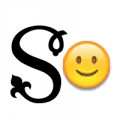Non-English languages that use the 26 letters used in English

Eris Alar
Posts: 459
Hi, a board game design friend asked me if it was possible to use an English Scrabble set and play in a language that is not English. Are there any, or many, languages that use the 26 letters that are used in English enough that playing a game like Scrabble is possible? Thanks
0
Comments
-
-
For German, in some kinds of games like crossword puzzles, etc., usually those German letters are substituted:
Ä → AE
Ö → OE
Ü → UE
ß → SS
Scrabble has umlaut letters in Germany (and the rules forbid using AE, etc., to represent umlauts), but it might as well be played substituting the letters as shown above.
When I scan a font containing only A-Z and a-z with my own orthography support tool, it reports those 35 orthographies as supported:AsuBembaBenaChigaCornishEnglishGusiiIndonesianKalenjinKinyarwandaLow SaxonLuoLuyiaMachameMakhuwa-MeettoMakondeMalayMorisyenNorth NdebeleNyankoleOromoRomboRundiRwaSamburuSanguShambalaShonaSogaSomaliSwahiliTaitaTesoVunjoZulu3 -
Of course, if you play German Scrabble with an English set, the letters will have the wrong weights...(Then again, the Y bearing 10 points in German usually leads to someone playing NY, MY, or EY for 51 points once a game...)(Any WordFeud players here?)3
-
Scrabble-nerd note: The value of letters in the English version Scrabble is based on the frequency of those letters in English!
4 -
Given that there are 100 tiles in a scrabble set, you'd need a language with a very similar letter frequency (small differences would unfairly impact overall gameplay).
E.g. According to this study (pp.27–9), Swedish has a relatively strong letter frequency correlation with English. But, this probably would not undo the advantage bestowed upon English-players when using an English Scrabble set. There are stark differences. For instance, Swedish Scrabble has separate tiles for Ä, Ö, and Å, while the letters Q and W are absent, but can be played with a blank (see Scrabble letter distributions).
Perhaps, some English-based creole languages?
3 -
Thanks everyone, this is really helpful! :-)0
-
The problem is many of these are supported with only A-Z and a-z because they use *less* than these 26 letters.Jens Kutilek said:
When I scan a font containing only A-Z and a-z with my own orthography support tool, it reports those 35 orthographies as supported:Asu(etc.)
A Kinyarwanda speakers not going to have much use for an L and a Swahili speaker is certainly going to be stumped by a Q or X.
1 -
Like others have mentioned, there are a few languages that the English alphabet could be used for (Afar comes to mind as a full A-Z).
However, to expand on Johannes' and Katy's points, Scrabble has different boards and different number of letters, based on letter frequency for a given language, which would make letters have different "drop" ratios (or "pull", as you pull them from the bag).1 -
You could play scrabble in Latin! Personally I would say I/J and U/V are acceptable distinctions to draw (and these are well sorted out for those who do distinguish between them). The letter W would not be used, however.
1 -
Indonesian here!
Yes, we do have the exact same 26 letters that English use. But it will be a really tough challenge to play Scrabble in Indonesian, since most of our words are lot longer than English.
As @Johannes Neumeier said, it depends on the letter frequency. We'll need different letter sets.
1
Categories
- All Categories
- 46 Introductions
- 3.9K Typeface Design
- 489 Type Design Critiques
- 568 Type Design Software
- 1.1K Type Design Technique & Theory
- 662 Type Business
- 868 Font Technology
- 29 Punchcutting
- 526 Typography
- 121 Type Education
- 326 Type History
- 79 Type Resources
- 112 Lettering and Calligraphy
- 33 Lettering Critiques
- 79 Lettering Technique & Theory
- 564 Announcements
- 95 Events
- 116 Job Postings
- 170 Type Releases
- 182 Miscellaneous News
- 278 About TypeDrawers
- 55 TypeDrawers Announcements
- 121 Suggestions and Bug Reports






